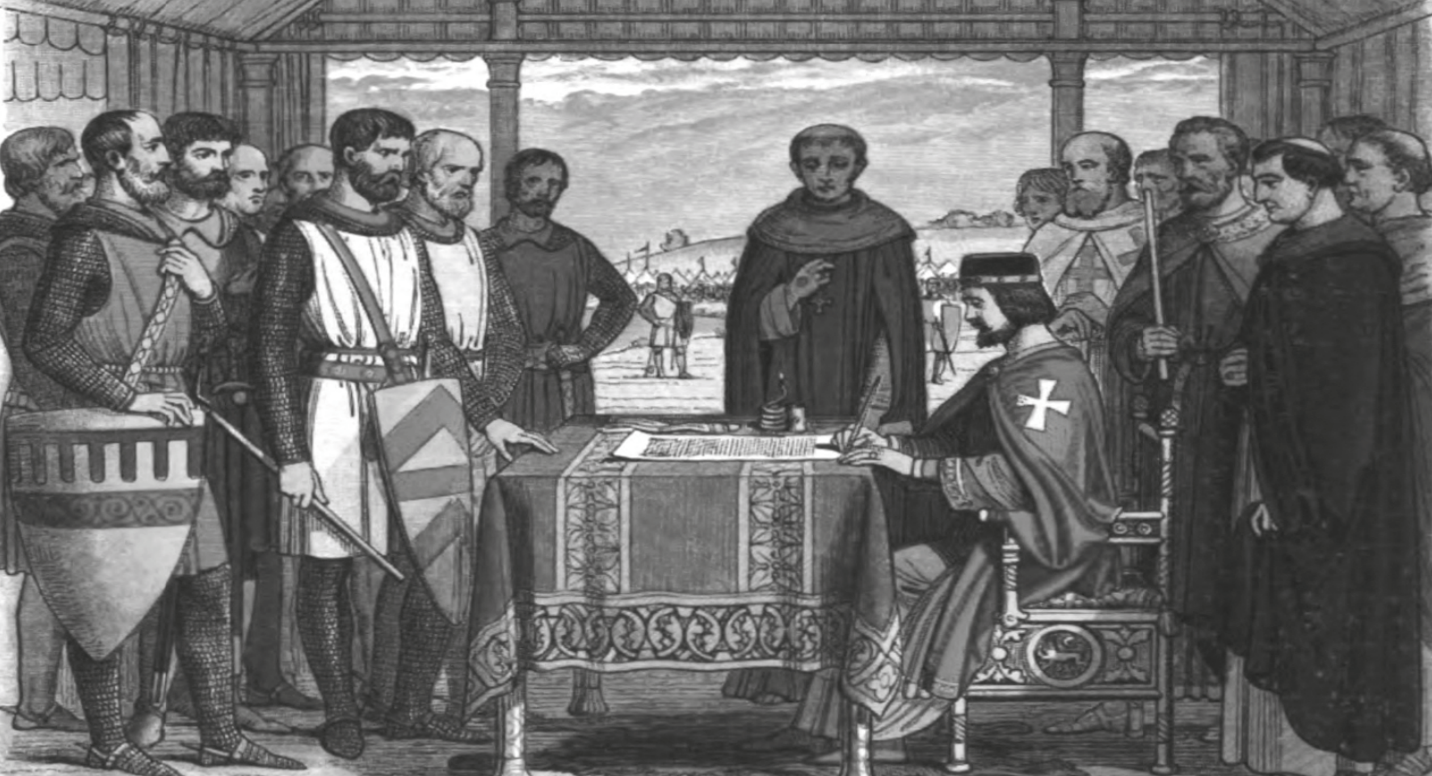Few documents in the history of the world have achieved as iconic a status as Magna Carta. It remains one of the best-known documents in British history, and its influence has been felt to varying degrees throughout the English[1]speaking world. Surviving copies of Magna Carta occupy a prominent place in the United States National Archives in Washington and in the Australian Parliament in Canberra. In the seventeenth-century, the great jurist Sir Edward Coke described Magna Carta as “declaratory of the principal grounds of the fundamental laws of England”, while two centuries later the nineteenth-century Whig historian Henry Hallam called it “the keystone of English liberty”. More recently, when the BBC History Magazine conducted a poll in 2006, the anniversary of Magna Carta’s signing on 15 June 1215 was voted the most suitable date for the nation to celebrate Britishness. The document itself – and the legacy of its influence ever since – thus clearly merits inclusion among the decisive moments in British history.
Like any great constitutional document, Magna Carta did not exist in a vacuum. It was not an expression of abstract philosophical principles but was rather the product of a particular set of political circumstances. The immediate context of Magna Carta was a severe breakdown in relations between King John and his leading subjects, the barons and the prelates, caused mainly by his unsuccessful attempts to regain his continental empire. However, the origins of the grievances that Magna Carta sought to redress dated back many decades before that. The political crisis of 1215 marked the climax of growing resentment again the tendency of the Norman and Angevin kings to maximise their powers in many areas of governance, especially in the conduct of justice and the raising of revenue.
Magna Carta was designed to push back against these royal tendencies and to establish that there were legal limits to monarchs’ authority and action. In the process it tried to make arbitrary royal rule more difficult and to legitimate resistance to it. Its main clauses were very much in the interests of the social and political elite – the “political nation” as medievalists often call it – rather than of the realm as a whole. These included provisions relating to the raising of revenue by means of feudal obligations, commerce and trade.

























